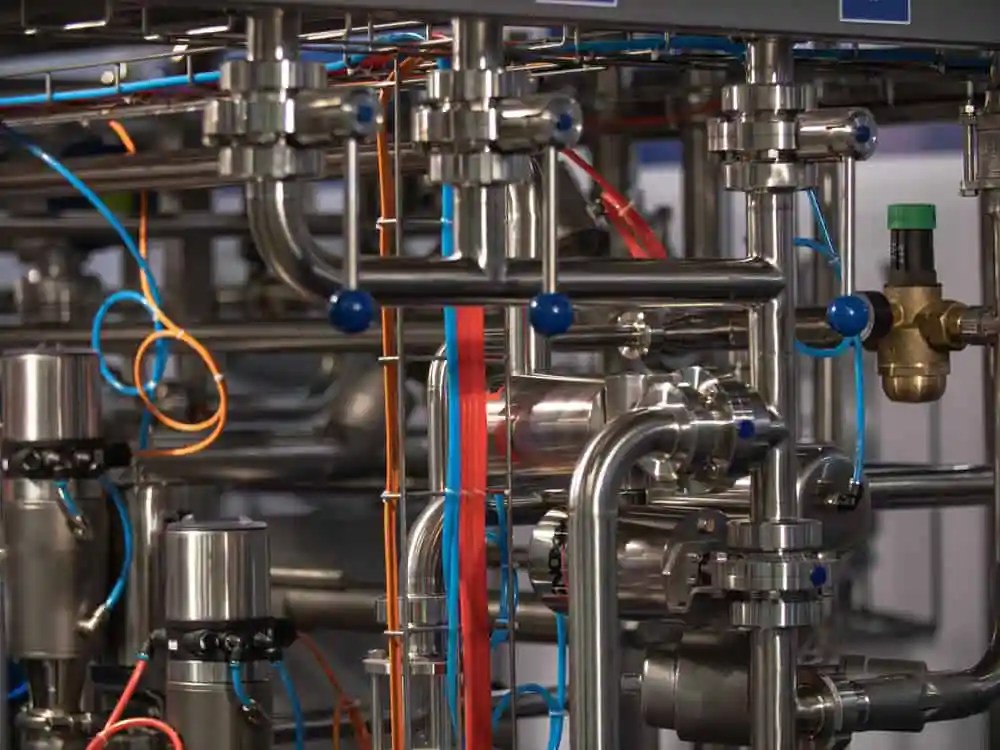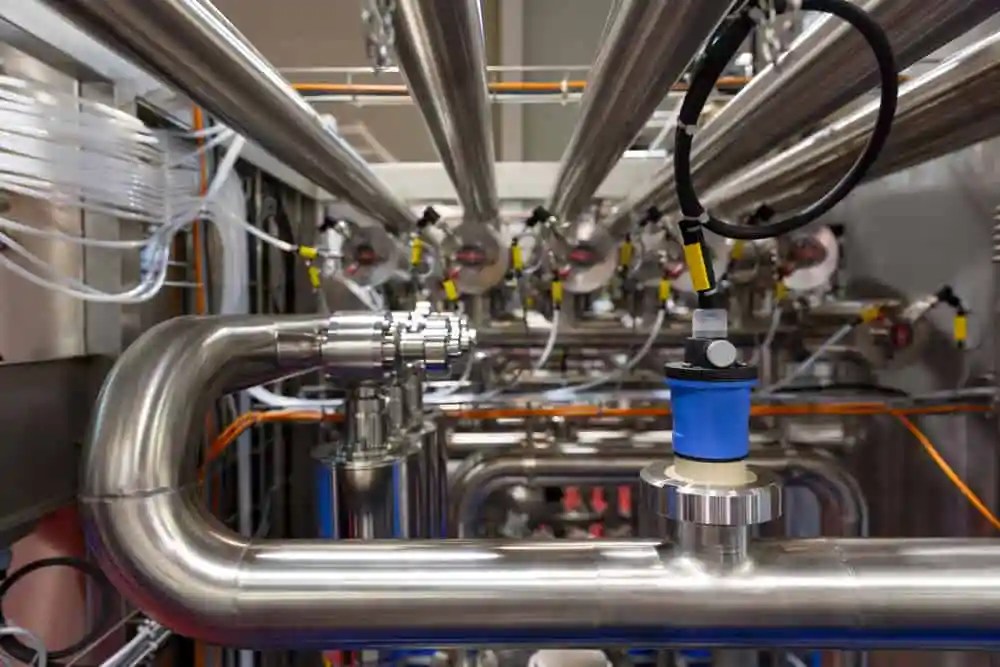Custom mobile test stand with integrated utilities, instrumentation, and controls
A clean energy manufacturer developing next-generation hydrogen-powered engines needed to expand its testing infrastructure to validate performance across multiple product lines. The systems had to simulate real-world utility load conditions, integrate with facility gases and chilled water, and be portable enough for use across different lab environments.
The client also required full instrumentation, PLC-based automation, and seamless integration with proprietary software. This called for a highly flexible test platform with precision engineering, rapid build cycles, and the ability to support future scaling.
Re:Build Optimation served as the turnkey partner, leading all phases from design through fabrication and testing. The engagement began with close collaboration between engineering teams to define system requirements and interface compatibility.
Key workstreams included:
Re:Build Optimation delivered a fully integrated, mobile fuel cell test platform designed for repeatable, flexible testing in a variety of lab environments. The solution featured:
The system enabled precise, repeatable testing of hydrogen-powered engines and provided the flexibility to scale across future product lines. With full integration of utilities, controls, and proprietary software, the project was delivered on time and met all technical performance requirements. The success of this initial platform led to continued collaboration and the development of additional test systems to support the client’s growing clean energy portfolio.


Let’s talk about your unique challenges and how Re:Build Optimation can help you.
Lorem ipsum dolor sit amet, consectetur adipiscing elit, sed do eiusmod tempor incididunt ut labore et dolore magna aliqua. Ut enim ad minim veniam, quis nostrud exercitation ullamco laboris nisi ut aliquip ex ea commodo consequat. Duis aute irure dolor in reprehenderit in voluptate velit esse cillum dolore eu fugiat nulla pariatur. Excepteur sint occaecat cupidatat non proident, sunt in culpa qui officia deserunt mollit anim id est laborum.
Lorem ipsum dolor sit amet, consectetur adipiscing elit, sed do eiusmod tempor incididunt ut labore et dolore magna aliqua. Ut enim ad minim veniam, quis nostrud exercitation ullamco laboris nisi ut aliquip ex ea commodo consequat. Duis aute irure dolor in reprehenderit in voluptate velit esse cillum dolore eu fugiat nulla pariatur. Excepteur sint occaecat cupidatat non proident, sunt in culpa qui officia deserunt mollit anim id est laborum.
Let’s talk about your unique challenges and how Re:Build Optimation can help you.